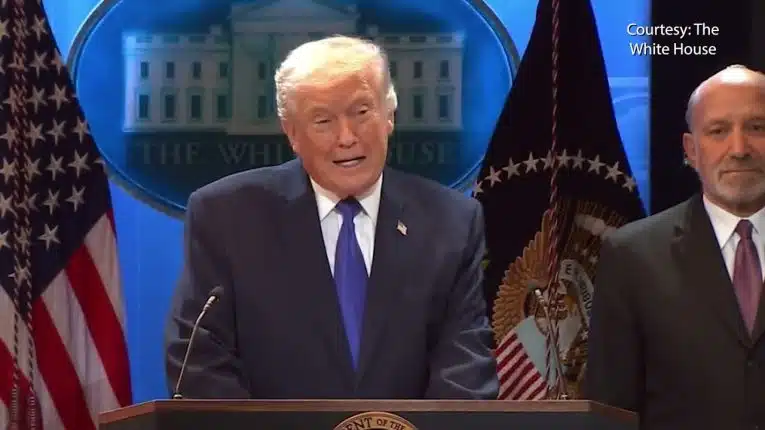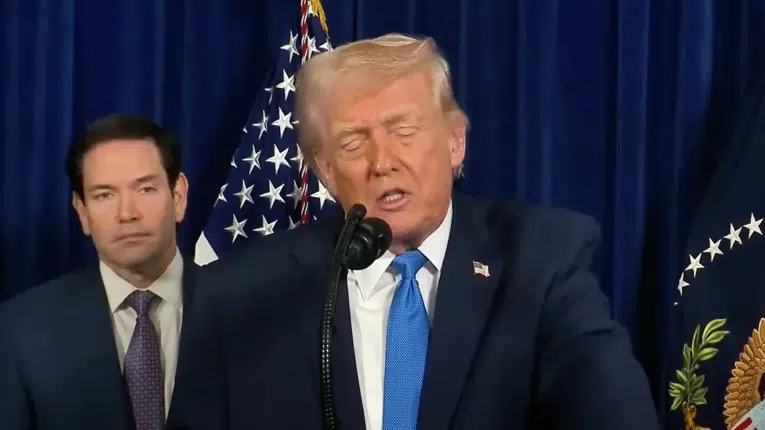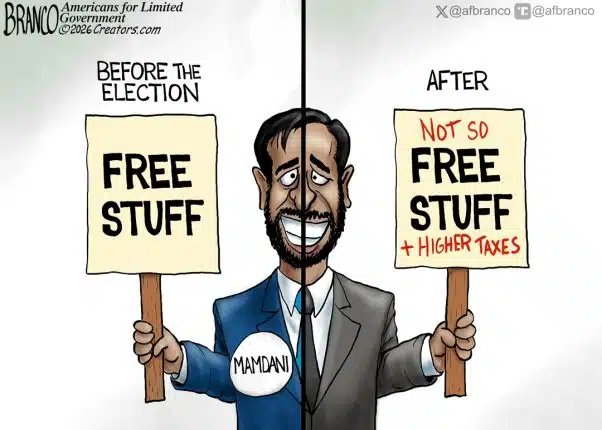“We Democrats cannot vote for that substitute and urge others to vote against it.”
That was Senate Appropriations Committee Ranking Member Barbara Mikulski (D-Md.) explaining in no uncertain terms that the proposed continuing resolution by Senate Majority Leader Mitch McConnell (R-Ky.) is dead on arrival.
The unexpected turn of events came as negotiations broke down between McConnell and his counterpart, Senate Minority Leader Harry Reid (D-Nev.).
I write “unexpected” because the legislation McConnell is touting as a compromise was apparently not even agreed to by Reid. It’s a Republican bill — that funds Democrat priorities.
And, it strips out language that would have prevented the transition of U.S. oversight of the Internet’s domain name system to foreign powers and multinational corporations at the end of the month, risking censorship by an unaccountable Internet global monopoly — with no First Amendment federal court remedy once out from under the U.S. government contract..
Meaning, McConnell is singularly responsible for everything in the legislation, including surrendering the Internet. He could have put whatever he wanted into the bill, including the language blocking the Internet giveaway. He opted not to.
Luckily, what he has on the floor now might not even pass. He has no idea what Reid will do when it goes to the floor Monday for a vote.
In other words, it’s amateur hour. McConnell ceded U.S. oversight over the Internet — in exchange for nothing. They got nothing.
Well almost nothing. You know what we’re hearing? Republicans might have kept language out that would have allowed the Export Import Bank to meet and conduct business at a lower quorum requirement. And they kept out funding for Flint, Michigan’s water crisis — which will probably pass next week anyway.
So they delayed inevitable meetings by the Ex-Im Bank to make loans pending another appointment to its board of directors in the next few months, and they slowed down passage of funding on Flint by a few days.
We ask you: Was that worth surrendering U.S. oversight of the free and open Internet we all use and depend on?
You know what we’re also hearing? That Senate leaders are blaming Sen. Ted Cruz (R-Texas) and Republican presidential nominee Donald Trump for elevating the issue and using their platforms to communicate to their supporters about it. Oh, the horror.
As negotiations broke down, Reid told reporters Sept. 22 that Trump’s support made the rider a non-starter: “It’s obvious to me that Trump, [who] wants the federal government out of everything, suddenly now wants the government in something. It’s his issue now, I don’t think it’s going to sell well in my caucus.”
So, Reid bluffed and told McConnell that Democrats would shut down the government if Republicans tried to block the surrender of the Internet to the international community — because Donald Trump said something about it.
And McConnell believed him, stripped the language out all by himself — without consulting with Reid — and put it on the Senate floor.
Can you believe this?
The Internet had to be given away because blocking the surrender was simply too popular, garnering the support of the GOP standard bearer, Trump, and oh gee, that was just too much exposure.
Never mind the fact that Trump’s statement actually helped to begin the process of reconciliation between Trump and Cruz after a bitter primary battle, helping to unify Republicans for the elections in November. A legislative victory by McConnell could have had Republicans nationwide saluting and feeling inspired to keep the Senate majority, to keep the Internet free and open.
Now? They’re cursing the day we ever won the Senate majority and put McConnell in charge.
In a statement, Americans for Limited Government President Rick Manning lamented McConnell’s surrender: “It is truly ironic that an issue which unifies the GOP, can be tossed aside because the minority in the Senate threatens to shut down the government… [T]he ultimate conclusion is that the GOP wields far more power when the Democrats control the Senate and they are forced to unify around conservative principles for political campaign purposes. The current Majority in Name Only is hardly worth defending when the Democrats and the corporatists win every battle.”
Perhaps McConnell also blames grassroots Americans who have been phoning their representatives and writing letters on this issue for 2-and-a-half years to stop the Internet surrender.
Or the Wall Street Journal’s L. Gordon Crovitz for writing too many columns about it.
Or Americans for Limited Government for filing too many Freedom of Information Act (FOIA) requests demanding the Commerce Department’s legal analysis of the authority to perform the transfer. Or demanding via FOIA analysis of antitrust issues to do with creating the global Internet monopoly in ICANN — which the Commerce Department still has not found any responsive documents for, nor have they responded to Congressional demands for the analysis.
You see, really, it’s our fault. For advocating the issue. We simply raised its profile too high. If only we all had kept quiet, Congress would have addressed this issue.
Oh wait, no they wouldn’t have.
In reality, it’s McConnell’s fault. For unilaterally stripping out the language blocking the Internet transfer, without apparently checking with anyone. Language his entire conference and both major Republican presidential candidates supported, which would have protected the vital Internet freedoms of each and every American. Because he did not know how to fight and win this issue, and when he unilaterally surrendered, blamed those who were on the outside trying to help.
Fortunately, all is not lost. McConnell has scheduled a vote for Monday, but already he is losing supporters for his precious continuing resolution. Sens. Lindsay Graham (R-S.C.) and Heidi Heitkamp (D-N.D.) have withdrawn support because it did not address the Export Import Bank’s quorum issues.
Which about that. If what it takes to save the free and open Internet for another fiscal year and kick this into the next administration so a new president can have a look is to lower the quorum requirements for the Ex-Im Bank, you lower the quorum requirements for the Ex-Im Bank. That’s not even a choice. Include funding for Flint, Michigan’s water supply in a bill that already spends hundreds of billions of dollars when similar legislation might pass the House next week anyway? Whatever.
The thing is, those issues however important (or unimportant, depending on your perspective) could also be dealt with again next year. Whereas once U.S. oversight of the Internet is relinquished — creating an unaccountable global monopoly over the Internet’s domain name system — we will never get it back. We hope we’re wrong, but the risks are there.
And we’ll know who to blame. Senate Republicans, who refused to fight and, in this case, compromise to get something done on behalf of the American people.
If House Speaker Paul Ryan (R-Wis.) has any sense he’ll immediately write his own continuing resolution, defund the Internet surrender — for the entire year, not this 3-month nonsense, like anyone wants to do this all over again in December — and send it to the Senate for consideration.
Or, Ryan can join McConnell’s failure and force his own conference to vote for an unpopular, ill-conceived continuing resolution that surrenders U.S. oversight of the Internet.
Because, make no mistake, a vote for the continuing resolution is a vote for surrendering the free and open Internet to foreign powers and multinational corporations. Whoever votes yes will share the blame. And the shame — when one day it goes against U.S. interests, and results in censorship, a global Internet tax and other evils.
Robert Romano is the senior editor of Americans for Limited Government.







